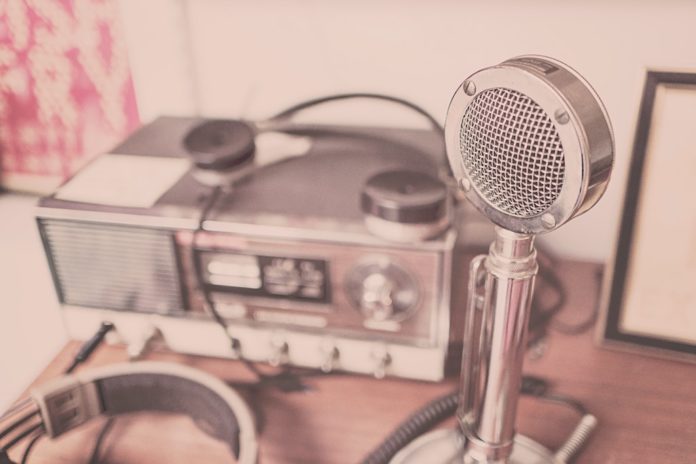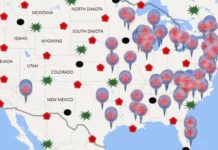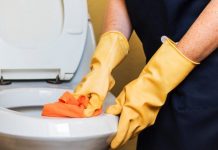But is it really true? Can you not use a HAM radio unless you’re licensed?
The answer to this question is both Yes and No. Surprisingly; here is a list of uses you can use it for without a license.
- Listen to FM radio
- Listen to Emergency Weather Radio
- Listen to Local municipalities radio communication
- Scan local frequencies (some states and cities ban the use of scanners; so double check with the local laws)
- Listen to Local amateur radio transmissions
- Use the built in flashlight
So through looking through the list; you can do a whole lot of listening; but no transmitting. What fun is that? There is one exception to being able to transmit. If in the event of an emergency you have no other way of communicating; you can use this to try and raise help.
This doesn’t sound half bad as a backup communication device for when SHTF. Well if you have ever used or even looked at one of these radios; they have thousands and thousands of frequencies. You would have to know exactly which frequencies to tune into so you can try and raise help.
They have several reasons of limiting communication without a license. Most local police/fire use the VHF and UHF bands. They use these so the communications is limited to their region. It does no good if Kansas City’s police traffic is heard in New York. So depending on your location and the power of your radio; you can do great harm by communicating on channels not on the amateur bands.
Sometimes; these bands are just a few hertz away from the amateur ones. They are band plans out there that you will learn more about if you decide to get licensed that let you know which frequencies a HAM radio can operate on. There is also proper radio etiquette and procedures that are used when communicating. These airways are monitored and fines are given for rules breakers. They can also pinpoint abusers of the amateur radios and track you down.
So why would you want to get your license?
HAM radios operate on a wide range of frequencies that allow armatures to talk around the world. Once you purchase your equipment; get your license and learn what you are doing; you can communicate locally and sometimes around the world for free.
How do you get your license?
There are three different levels of licenses that are issued to HAM radio operators.
- Technician
- General
- Extra
The technician is the “entry” level license. This allows you to talk on most frequencies above 50MHz. These are the VHF (very high frequencies) and UHF (ultra high frequencies) frequencies. These will be for mostly local communications up to 100 miles away depending on equipment.
These are a great way to learn to the basics of using HAM radios. This level of license also allows you to talk through Morse code on lower frequencies (they have a longer wavelength and have further transmission distances). As a technician you can talk around the world through Morse code if you have the correct equipment.
After I found out that the radio I bought was a HAM radio I started researching on how to get my license. I found a test site that had a test scheduled in 1 week. I signed up for the test and started looking for study material. There are many online courses that you can sign up for and cost $25-$30. I am not about spending money on stuff unless I absolutely have too. I found an amazing study guide at http://www.kb6nu.com/study-guides/. This one is free! I started reading through this and was lost at first. I knew there had to be a better way. I did some more research and found this YouTube video:
It goes step by step through the study guide listed above. The video is just under an hour and a half long. This was a turning point for my studies. I went through the study guide and this video once together. Then for the next two days I watched the video while driving to work and home again.
I listened to the video 3 times and felt pretty comfortable in my knowledge. I was ready to try some practice tests.
I found the best site for practice tests; flash cards; and even the complete question pool is https://hamexam.org/. In order to get your technician license you must pass a 35-question test out of the 426-question pool. You are asked a certain number of questions from the various categories.
The general license is probably the most used class. This allows you to use most of the HF (high frequency) bands. With this license you can also use all the frequencies used by a technician.
Where with the technician you can only communicate on the lower frequencies by Morse code; you can with the general license you can talk or send data through these. There are real popular frequencies/bands that allow you to talk around the world. The great thing about using the amateur band network is that the standard worldwide language is English. So if you are reading this you are set.
No need to learn a different language to talk with other around the world. I have searched for a free study guide; but have not yet found one that is worth it. I have however found a very good YouTube video. It is broke up into 3 parts and each is 2-3 hours long. They are extremely informative; but very easy to follow.
This is a very well put together guide. It has the same writer as the one that wrote the one for the technician license. This license requires you to pass a 35-question test as well out of a pool of 463 questions. You are asked a certain number of questions from the various categories.
The extra license allows you even more frequencies/bands to talk on. If you want to be able to use any frequency on the amateur radio network then this is the one for you.
There are also other perks that come with being an extra. You can get a custom shorter call sign. You can also volunteer to test others to become HAM radio operators. There is an entire YouTube series that goes chapter by chapter. The first one is:
This test is 50 questions out of a pool of 712 questions. You are asked a certain number of questions from the various categories.
Whichever license you are planning on taking you can visit https://hamexam.org/ and get the entire question pool; practice tests; or flash cards. All these are completely free and will greatly assist you in getting your license.
So now you are ready to take your test; what is the next step?
Visit http://www.arrl.org/find-an-amateur-radio-license-exam-session; and you can search for a testing center near you. The great part about getting your license is it only cost $15 per session. That isn’t $15 per test; but per session.
You can show up; take and pass your technician; then take your general; then if you pass take you extra. All this for only one fee of $15. I you study hard you can walk out with your extra license in one day. Now once you pass either your technician or you go all the way through to extra; you can’t start talking that day. You have to wait for the FCC to issue you your call sign. This took about 10 days for mine to post on the website; but well worth the wait.
In conclusion; anyone can study a little; buy a radio for under $50 and pass a 35-question test to be able to talk on your own radio up to 100 miles away. This is perfect for when SHTF or event for daily communications. The above links are a great resource for passing your tests; but they barely scratch the surface on using your radio. I suggest joining a local radio club and share their knowledge and equipment to better you skills.





















